#grandma georgina
Explore tagged Tumblr posts
Text

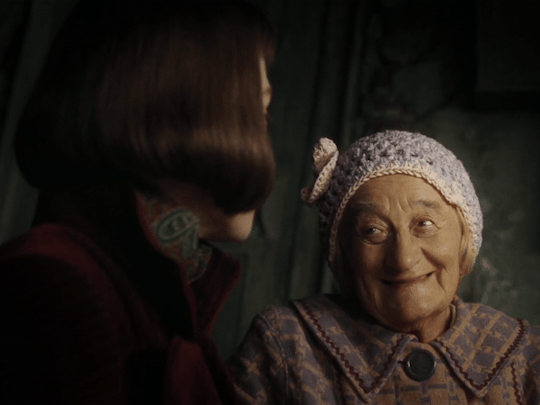



CHARLIE AND THE CHOCOLATE FACTORY (2005) dir. by Tim Burton
#willy wonka#grandma georgina#charlie and the chocolate factory#charlie and the chocolate factory 2005#catcf 2005#he's trying
88 notes
·
View notes
Text
Chapter Seven
Masterlist
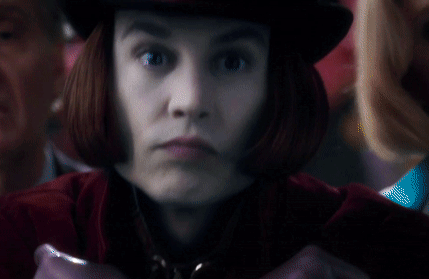
Charlie sighed as he prepared for this new day. Your absence was felt. Her parents and grandparents acted like everything was fine and the fight never happened. Charlie had been at Bill's to see you, but your boss replaced you and you never set foot in his store again. The boy resented his parents for pushing you over the edge. Charlie sighed, leaving the Bucket house to go to his job as a shoe shiner. He was surprised to see the glass elevator park right next to the seats and a man, hiding behind a newspaper, was waiting. A man who was none other than Willy Wonka. What was he doing here? Charlie decided to play the game, he prepared his equipment and began to polish the chocolate maker's shoes.
"Pity about that chocolate fellow Wendall. Walter."
"Willy Wonka," Charlie replied.
"That's the one. Here in the papers his new candies aren't selling very well. But I suppose maube he's just a rotten egg who deserves it."
"Yes."
"Oh really? You ever met him?"
"I did," Charlie replied, stopping to shine his shoes. "I thought he was great at first but then he didn't turn out so nice. He also has a funny haircut."
Hearing that, Willy quickly lowered the newspaper. Revealing in broad daylight.
"I don't."
"Why are you here?" Charlie asked, putting away his gear.
"I don't feel so hot. What makes you feel better when you feel terrible?"
"My family."
"Ew."
Charlie stood up seeing the chocolate maker's disgusted reaction. He asked him what he had against his family, which caused Willy to gag. Harry sighed, explaining that it was the concept that bothered him. The fact that people tell him what he has the right to do or not to do, that all that was a brake on creativity. Charlie shrugged, retorting that if the parents reacted like that, it was because they loved their children and it was for the proteges. What still made Willy wince who was not very convinced of this explanation.
"If you don't believe me you should ask," Charlie said.
"Ask who? My father? No way. At least not by myself."
"Do you want me to go with you?"
"Hey! What a good idea!" Willy exclaimed as he left the seat to approach the glass elevator. "And you know what? I got-"
Willy paid no attention and crashed headlong into the glass elevator wall. The chocolate maker collapses, before the surprised eyes of Charlie. He stood up, adjusting his hat on his head, muttering that he should be careful where he parked it. Willy pressed the button, opening the doors. The two entered the flying elevator. Willy announced that he had to get someone from the chocolate factory before going to his father's house. Willy led the boy to the door of his apartment, telling him to wait in the hallway until he returned. You were perplexed when you saw Willy coming back. Had he already finished what he had to do?
"Is that okay with Charlie?" you asked, turning down the sound of the television.
"Charlie? Oh yeah! He's in the hallway right now."
"What?! Why did you bring her to the chocolate factory?!" you asked, getting up from the couch.
"Charlie had a brilliant idea! I have to go find my father and he's going to come with me," he said, moving closer to you. "I would very much like you to come with me there too."
"For what?"
"I can't do it alone. I know that with you, I will have the strength to face him. Please, Barley sugar."
"Okay, I'll come with you," you said with a sigh. "But only because you helped me and I owe you!"
"Yes sir!"
You rolled your eyes when you heard that. You grabbed your old coat, following Willy out of the apartment. Your gaze automatically fell on Charlie. Your cousin was surprised to see you with his idol. You nodded to him, following Willy to the glass elevator. The tension was palpable in the cabin. Willy was between you and Charlie. Your cousin was as uncomfortable as you. What could he tell you? He didn't know what to say, especially after what happened with his parents. Even you didn't know what to say to him. It was terribly embarrassing. The trip to Mr. Wonka's house was made in heavy silence. The elevator lands in a huge field where there was a house. There was nothing else around. The trio were closing in on the house. The closer they got to the house, the more nervous Willy became.
"I think we have the wrong house," Willy said as he climbed the stairs.
The gaze of the two cousins landed on a small sign that read 'Dr. Wilbur Wonka, D.D.S. Dental Practitioner.' Willy fell silent as Charlie pressed the doorbell. You put your hand on Willy's bicep, smiling at him to motivate him. The chocolatier nodded slightly, taking a deep breath when a stern-looking man opened the door, watching the trio intently.
"Do you have an appointment?" he asked.
"No, but he's late," Charlie replied, gesturing towards Willy.
Willy giggled, clinging more to your hand and muttering to you that it was a bad idea. You reassured him, telling him that everything was going to be fine. Dr. Wilbur nodded to the trio, inviting them to follow him. You had to drag Willy inside the house, taking the chocolatier to the cabin. Willy gave your cousin his glasses and his hat, and he gave you his long coat.
"I'll be fine," you said, smiling at him.
"Yeah."
“Get into your position,” Wilbur said sternly, pulling on his gloves.
Willy sat down on the armchair, allowing his father, who hadn't recognized him yet, to check his teeth. Your cousin and you took advantage of this moment to better observe the walls covered with newspaper articles talking about Willy and his chocolate factory. There was even a scrapbook with other items and wrappers of Willy's famous sweets. Charlie flipped through the album as your attention fell on a photo of a young man. Probably Willy before he got so fabulous. That was the only word that came to mind to describe him. You took the frame in your hands, you couldn't help but smile. It was obvious that Wilbur cared about his son.
"Be careful with this picture, miss," Wilbur said, snapping you out of your thoughts.
"Sorry, sir," you say as you put the frame back on the fireplace.
"Heaveans, I haven't seen bicuspids like these since..."
Wilbur fell silent upon realizing that the man standing with him was none other than his son. He withdrawing his instruments, depositing them on the table. He couldn't believe it. Willy greeted his father, straightening up.
"All these years and you haven't flossed," he said, dropping his stern mask.
"Not once," Willy answered.
Wilbur smiled. After all this time, he finally saw his son again. The two men hugged each other awkwardly. You nudged Charlie lightly, nodding him towards the door. The two cousins left the room, leaving Willy and Wilbur alone the time of their reunion. You went to sit on the stairs as Charlie leaned against the wall next to the door, facing you.
"He's lucky," you say, playing nervously with your fingers. "His dad loves him. It shows."
"Yes, he just wanted to protect him from the ill effects of candy," Charlie said with a shrug.
"Yeah," you replied with a sigh. "How's it going... over there?"
"It's gotten… weird since you left," he said, shifting awkwardly to his feet. "You... you're not going to come back, are you?"
"I can't Charlie. Not after what happened with Uncle Bucket."
"I understand. I'm sorry."
"Charlie. Listen. You don't have to apologize for anything your father said or did. What Uncle Bucket told me is unforgivable. I could never forgive him for treating me the way he did it. I shouldn't have lost my temper in front of you. You shouldn't have seen this argument. Believe me, I'm sorry about that, but I'm not sorry that I left the house. ."
Charlie looked down, biting his lip. He was doing his best to hold back his tears. You sighed, dropping the coat on the stairs to get up and move closer to him. You put your hand on his shoulder, catching his attention. You hugged your cousin, hugging him.
"Charlie. Just because I'm leaving the house doesn't mean I love you less. You'll always be my favorite cousin. If you have any problems, you can come see me. I'll always be here for you, I'll promise."
Charlie nodded slightly, burying his face in your chest as he hugged you. You end the hug when you hear the door to the medical room open. Willy and his father leave the room. It seems that their discussion went well. Willy approached you and Charlie, asking if you were ready to leave. Your cousin and you acquired. You gave him back his coat and Charlie gave him back his glasses and hat when Wilbur asked if he could talk to you privately. You looked at Willy who told you that he was waiting outside with Charlie, because he had to find the glass elevator. Willy and Charlie left the residence, leaving you alone with Father Wonka.
"I wanted to thank you for coming with Willy, miss. He explained to me that you hadn't been there, he wouldn't have had the courage to come and see me," he said looking down at you.
"It...it's nothing, sir. Your son helped me. So it's only fitting that I reciprocate," you said, playing nervously with your fingers.
"I haven't been the best father to him. I know that. But I love my son. I've always followed his work. What worried me the most was that Willy didn't have no one to rely on. And when he talks to me about you, I see that he has a lot of affection for you. I know I have nothing to say, but I just want to ask you to watch over him."
You didn't expect this. It was the first time someone asked you such a thing. To you, the poor girl that everyone looked down on. You nodded slightly, agreeing to watch over Willy. You joined Willy and Charlie. The two were waiting in the glass booth. You joined them quickly, entering the elevator which started. Willy liked you? It was true that the chocolatier had shown tender gestures towards you, but at this point? Was it even possible? Come to think of it, Willy was always kind to you. He had offered you beautiful clothes, he had given you special attention during the visit to his chocolate factory and he was hosting you without asking you for anything in return. He had affection for you.
"(Y/N), are you okay?" Charlie asked, looking worried at you.
"Y-yes. Why?"
"Your face is red."
"Do you feel good, Barley sugar?" Willy asked, taking off his glove to put his hand on your forehead. "You have a fever?"
"N-no. I-I-I'm fine!" you exclaimed, removing Willy's hand. "I… I'm just tired. I just want to go home."
Willy and Charlie looked at each other surprised by your behavior. You had become silent and you were mumbling to yourself. You nervously played with your fingers. What was going to happen once you go back to the chocolate factory? What were you going to tell him? What were you going to do? What was he going to do?
"(Y/N)?" Charlie called.
"I'm fine!" you say quickly, glaring at Charlie.
"Um... we're back at the chocolate factory."
"Um? Ah yes. Um...I'll walk Charlie to the gate."
Charlie joined you in the elevator, greeting Willy. The doors closed and the car moved quickly, carrying you and your cousin to the entrance hall. The boy looked at you puzzled as you exited the glass booth and made your way to the door.
"Are you doing well?" Charlie asked, looking worried at you. "You've been weird since we got back from Doctor Wonka's house."
"Yeah, I'm fine. I… I'm just thinking about something," you say, running your hands over your face. "It's...it's really nothing, Charlie. I... I'll ask Willy so you can come see me once in a while. How about that?"
"That would be nice," he said smiling at you. "Good. Is it ok to get home? Do you want me to come with you?"
"It'll be fine, don't worry."
"I'll at least accompany you to the gate."
You accompany Charlie to the huge gate. You opened the door for the workers, asking him if he was sure he wanted to go in alone. Your cousin smiled at you, telling you that it was not the first time that he had come home alone without being accompanied. You smiled, reminding him to be careful. Charlie hugged you, telling you he missed you before he left. You watched him walk away, making sure he was okay until he disappeared from sight. You went back inside the chocolate factory, returning to the apartment. Willy was in the kitchen area, finishing making hot cocoa. He was smiling at you, asking if Charlie got home okay. You nodded slightly, moving closer to him. You watched him melt the chocolate in the milk, which was warming gently on the stove.
"It was...a rather strange day," you say as you prepare the cups.
"Yeah, but strangely... I'm happy with the result," he said, smiling at you.
"Yes," you say, leaning on the counter.
"I wanted to ask you. Can Charlie come by here once in a while?"
"Of course. He is welcome here."
"Great. He'll be happy."
Willy removed the pan from the heat, pouring the chocolate liquid into the cups. You took your steaming cup, thanking the chocolate maker before going to sit on the couch with him. The silence that settled was restful after this eventful day. To tell the truth, it was more restful than the other days. A weight had been lifted. You still had Charlie with you and Willy had made up with his father.
"This last days were really strange," you say, taking a sip of the sugary drink.
"Yeah, I never thought all of this could happen," he said, also taking a sip of his drink before setting the mug down on the table to remove his gloves. "And I still want to thank you for coming with me."
"I owed you that. You helped me a lot, I owed you that," you said smiling at him.
"You didn't have to," he said slipping his hand into yours. "And I can't thank you enough for that."
"And I can't thank you enough for letting me stay with you."
Your eyes met Willy's. He squeezed your hand gently your hand in his. He passed his free hand over your cheek, smiling fondly at you. You couldn't help but think back to Wilbur's words. Willy would really like you. You would be lying to yourself if you said otherwise. You put your hand over his, looking him in the eye. It was a strange, exciting and terrifying feeling. Willy brought his face closer to yours, pressing his lips to yours. The kiss was sweet. It was strange to kiss someone. Willy pulled back, breaking the kiss.
"You really do care for me then," you said, looking at him awkwardly.
"Of course. The first time I met you with that pissed off woman from the service," he said, chuckling lightly. "I knew that... that you were worthy to come here, that I had to show you around the chocolate factory, that I had to get to know you. I loved every day that you stayed with me and I don't want to not that it's over."
"To hear you, it sounds like a confession."
"Are you disturbed?"
"No, I'm happy," you said, smiling at him.
Willy was smiling, kissing you again when someone knocked on the door. The chocolatier had no choice but to part with you. He stole a last kiss from you before walking away from you to open the door for one of his Oompa Loompas. You were watching him chatting with his employee when you saw his expression become bored. Willy came back to get his gloves.
"Sorry, trouble with one of the new treats," he said, putting his gloves back on. "I'll be right back, Barley sugar. I love you."
You looked at Willy surprised when he left the apartment to go as quickly as possible to the Inventing Room. Did he just tell you he loved you? You couldn't help laughing, wondering how long it would take the chocolate maker to realize what he had just told you.
"I told her that I loved her!" Willy shouted, startling the Oompa Loompas.
#charlie and the chocolate factory#fanfiction#x reader#female reader#charlie bucket#grandma georgina#grandma josephine#grandpa george#fanfic writing#willy wonka x reader#willy wonka#golden ticket#oompa loompa#mr.bucket#mrs bucket
198 notes
·
View notes
Text
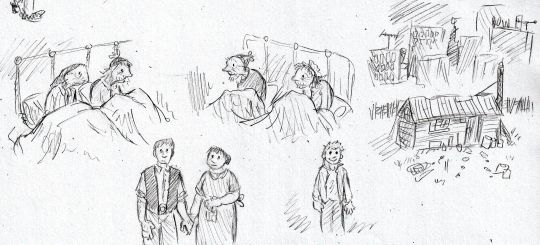

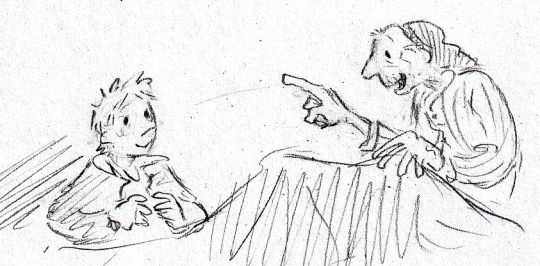
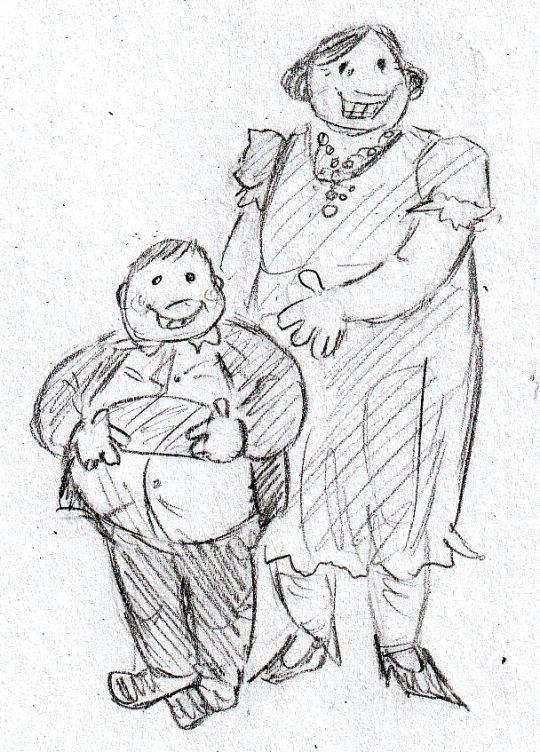


redraws of quentin blake's illustrations
#I FORGOT ABOUT THESE#aughh#one day. i'll continue with this. surely#catcf#kaart tag#charlie bucket#charlie and the chocolate factory#grandpa joe#does anyone use these tags?#they get tagged anyways#grandpa george#grandma georgina#grandma josephine#veruca salt#augustus gloop#mrs gloop#mr salt#mrs salt#mr bucket#mrs bucket#there o7#pencil
144 notes
·
View notes
Text
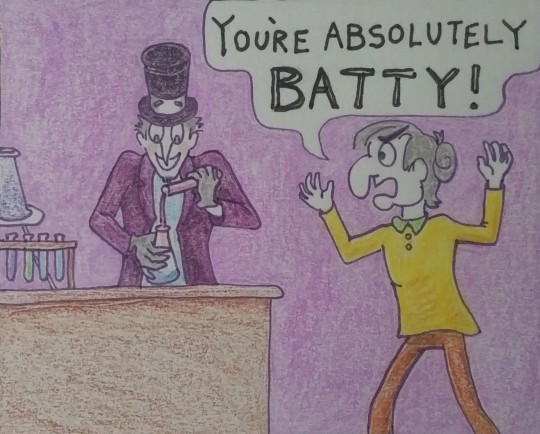




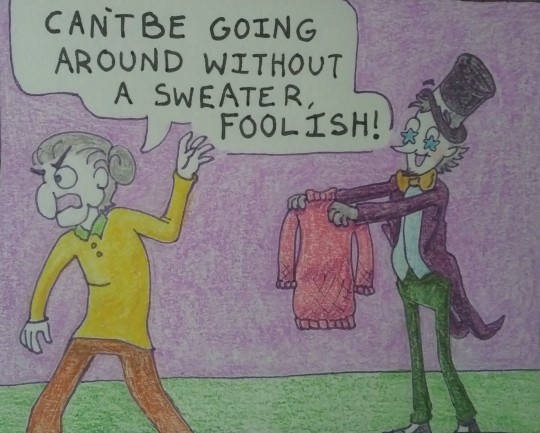

Grandma Georgina, everybody
#wonka#willy wonka#willy wonka art#willy wonka fanart#wonka fanart#catcf#grandma georgina#oompa loompa#oompa loompas#charlie and the chocolate factory#charlie and the great glass elevator#catcf fanart#willy wonka and the chocolate factory#alicia durham art#alicia durham
72 notes
·
View notes
Text
I watched Tim Burton’s Charlie and the Chocolate Factory with Johnny Depp as Wonka, I still find that movie extremely iconic. The movie is so hilarious and it mainly has to do with Johnny as Wonka who is so socially awkward that it makes me love him. Charlie’s grandparents are amazing too.
#tim burton#charlie and the chocolate factory#johnny depp#willy wonka#charlie bucket#grandpa joe#grandma josephine#grandpa george#grandma georgina#roald dahl
22 notes
·
View notes
Text
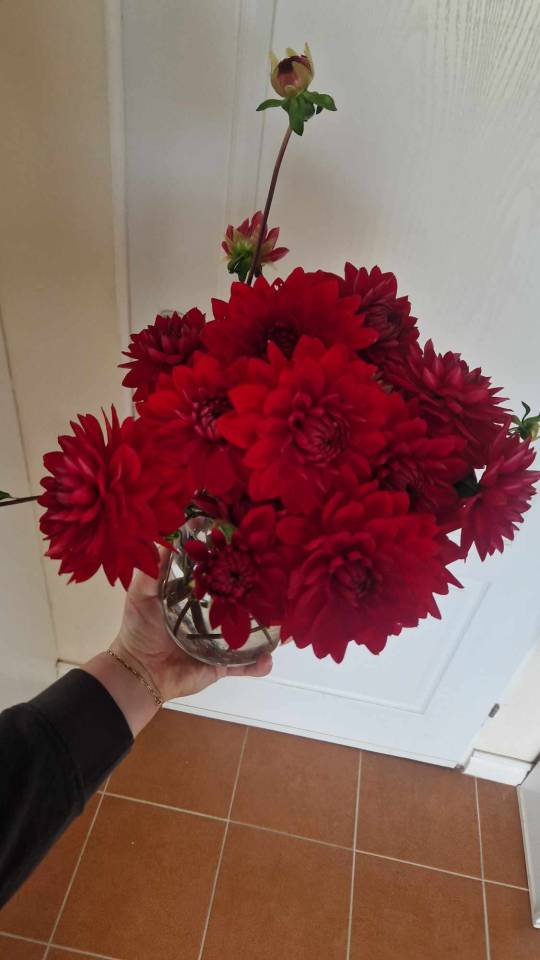
#my grandma's dahlias#they mean so much more now that she's gone#when you lose someone suddenly everything that was theirs gains so much value#flowers#flower#bouquet#vase#dahlia#dahlias#georginas#georgina#red
0 notes
Text
@lestatslestits I think this poll is for you
#honestly the 1971 movie is the one I most vividly remember so that one#even if anxiety is the emotion I most associate with it lol#great glass elevator is a great glass acid trip though#they squeeze the whole bucket grandparent bed into the elevator and they go to space#and the one grandma reverse-ages into not existing#the chapter is titled ‘goodbye Georgina’ (or Josephine I forget which grandma) and it makes you think ‘oh she’s gonna die’#but nope something weirder happens
20 notes
·
View notes
Text
Catcf post au drawn with a base.(The one with the colored bases are the original one).


Charlie (post) lore
Is Willy Wonkas heir to the factory.
I decided to make him a boy like in the cannon.
His family consists of his (mom side) grandpa Joe, grandma Josephine and (dad side) grandpa George, grandma Georgina.
His dad used to work for slug worth before getting fired, even when Wonka knew this he was nice to him.
His signature color is blue rather than a pinkish red and he has his own suit with a tiny top hat.
He invites the kids in the factory to try and fix them.
Is acesexual.
Development: Learn to not always do what others want.
Veruca (post) lore
Had been not as spoiled by her father after the trip, still is very rude.
She is like a stitched up doll, falling apart.
Her design change consists of longer hair, a pinkish bow, and a different dress.
She may or may not have a crush on Charlie or Violet (I’m wondering which one to do).
Her family consists of a dad, mom, grandpa (mom side), and a younger brother (5 years old) named Victor.
Is a Demi-bisexual.
Development is to be nicer to others and humble herself.
Charlie ‘cures’ her by getting her to drink this nasty juice that taste like medicine and when she drinks it the body stays intact.
Violet (post) lore
She is still doing competitions (for now).
Mom decided to exploit flexibility for her to win and get fame and fortune.
Has mommy issues.
Is very to herself and would not usually talk to anyone due to her moms ‘good’ advice.
She has an eating disorder and is very body conscious due to her trauma.
She now wears a crop top that (supposed to) says ‘pop’,headband and pearl earings.
Has now purple skin and hair, also gave her one pimple (to give her some imperfections, I have them as well).
Her family consists of her mom and aunt.
She is a lesbian.
Development is to make her own thoughts and wants.
Charlie (still trying to) ‘cure’ her by telling her she needs to eat food and not just chew gum for her hunger however her mother won’t let her and forced her to go to competitions still.
Violet contacts them in secret on her phone to get her treatment.
Agustus (post) lore
His skin now has a chocolate like texture (his skin would sometime melt under certain conditions.)
He is way nicer than during the first trip.
Has diabetes.
He is still eating as much as he wants but is exercising.
He is a straight ally.
He is fluent in German and would sometimes swear in said language.
Charlie ‘cures’ him by making him eat this cotton candy that observes the chocolate from the water fall within and out of him making his skin no longer like chocolate.
His family consists of his dad mom and cousins.
Development is to not eat as many unhealthy food as before.
Mike (post) lore
His body rather than being stretched was coded inside of a robotic like body with a tv as his head showing him in it.
He would probably be the rudest to Charlie and the others.
He probably speaks like the stereotypical gen alpha kids.
He would have a device on him seemingly 24/7.
Is a closeted gay.
May have a crush on Charlie (he Denys it).
Has undiagnosed autism.
His family consists of his mom, dad and older sister.
Mom is an alchoholic.
Charlie can’t properly cure him, he can however try to make him feel better (this ‘therapy’ isn’t working right now).
Development is to be more accepting of others.
#catcf au#catcf#charlie and the chocolate factory#charlie bucket#mike teavee#violet beauregarde#veruca salt#augustus gloop#the one who wins the golden ticket au#headcannons#redesign#art bases#base does not belong to me#artists on tumblr#fanart#digital art#catcf fanart
8 notes
·
View notes
Text
From what I remember Charlie and the Great Glass Elevator was basically an episode of Doctor Who??
The Great Glass Elevator (which I am hereforth referring to as the GGG because I refuse to type that out every single time) was basically a see-through TARDIS. It had loads of buttons all over the walls, some of which made it go different directions/speeds, and some of which changed conditions inside (turned gravity on/off, etc.). I cannot remember whether or not it was bigger on the inside because I read this when I was eleven.
In the beginning they travel in time because, long story short, Charlie’s Grandma Georgina takes too many youth pills and ages herself back to before she was born. They have to travel in time to get her back from being ‘a minus’ before she disappears. They end up in a smoky, dark place full of monsters from which they have to rescue her and take her to the real world.
There is a hotel in a space ship for very rich people (Voyage of the Damned: Christmas special 2007, End of the World: S1 E2) that Willy Wonka visits with Charlie & fam later on that’s really nice yet FULL of these aliens called Vermicious Knids that look like giant, flesh-covered eggs balanced on the pointy end (which feels very much like an RTD-era monster if you ask me).
Willy Wonka is similar to the Doctor, with his crazy inventions and unbelievable genius. He fights the Vermicious Knids when they try to get inside the GGG to kill them. He basically adopts Charlie (as the Doctor does with companions), and helps the rest of his family to lift themselves out of poverty.
He is friends with ‘aliens’ (the Oompa-Loompas) and gets along just fine with all manner of creatures, travels extensively, and nobody knows exactly how old he is (remember, kids: in the book he is not a youthful Johnny Depp but a sprightly old man!). There is nobody quite like him. He dresses strangely and is generally agreed to be eccentric yet sweet, however he has a dark and dangerous side which can emerge. He doesn’t have very good social skills, but he largely gets along with the people of the town.
Anyway this is a very long post about a book I hardly remember, but all this to say: I want RTD to get Timothée Chalamet’s Willy Wonka into s15 so I can see him be devoured by a ginormous, carnivorous flesh-egg.
Thank you for coming to my TED Talk.
#doctor who#willy wonka#charlie and the chocolate factory#charlie and the great glass elevator#roald dahl#vermicious knids should be a dw monster FIGHT ME#wonka#wonka movie#timothée chalamet#the end of the world#voyage of the damned#rtd#rtd era#dw#new who#nuwho#the doctor#dr who
18 notes
·
View notes
Text
Here’s Why Willy Wonka Is An Autistic Icon | Medium
Here’s Why Willy Wonka Is An Autistic Icon
In celebration of the release of the new Wonka movie this month, I recently rewatched, for the billionth time, the original film — Willy Wonka & the Chocolate Factory. Wonka media has been a special interest of mine for the past seven years — -an autism-related term used to refer to topics and subjects that occupy headspace constantly, meaning I know more about Willy Wonka and his crimes against humanity than any sane person really ought to.
While watching the film, I was once again struck by how much I related to the character. His odd mannerisms, his disregard for small talk and social niceties, and his fixation on a self-constructed world all reminded me of a lot of my own experiences growing up as a quiet, book-obsessed, undiagnosed autistic kid. Although I was recently diagnosed at the age of twenty-one (it’s never too late!), the sense that something was always a little off has dogged me since childhood — in my odd tendency to repeat words and phrases, my limited and intense interests, my awkwardness in conversation and struggle to make friends. And as I sat there, watching Wonka spout off nonsensical phrases, constant literary references, and the occasional bit of wisdom, I finally got the urge to lay out, once and for all, what an autistic icon this character is, and has been for the past sixty years. Let’s dive into a world of pure imagination together.
A Little Nonsense
Autism, since it is formally classified as a disorder by the DSM5, has a whole host of medical definitions that try to sum up, in as digestible a form as possible, just what exactly is wrong with you or your child. Instead of pinpointing one definition, I’m going to temporarily throw the psychological jargon out the window and focus on the single term “disorder.” Disorder, classically defined, is a state of confusion or messiness — usually a form of existence that runs counter to broad definitions of harmonic living. Although unintended, I find that the literary definition rather than the scientific one fits my, and Wonka’s, experience of living as autistic. Disorder is chaos, it’s doing things just because.
Take this excerpt from Charlie and the Great Glass Elevator, the rightfully-maligned sequel to Charlie and the Chocolate Factory:
“I have never met a man,” said Grandma Georgina, “who talks so much absolute nonsense!”
“A little nonsense now and then, is relished by the wisest men,” Mr. Wonka said.
Many autistic people are told at one point or another that the way they think and act does not make sense. For example, in many adaptations of the story, visiting the chocolate room for the first time leads the parents to question why it came to exist in the first place.
In the original West End musical adaptation, the conversation goes something like this:
Mr. Salt: Well if it isn’t for anything, and it doesn’t make money, then why on Earth does it need to exist at all?
Wonka: You really don’t see, do you?
A painter needs no reason
To make a thing of art
Yes, there’s no switch to stop and start the flow
Willy Wonka (Douglas Hodge) in the Chocolate Room from the 2013 West End production of Charlie and the Chocolate Factory
We live in an unprecedented age of unthinking consumerism — our lives, from the get-go, are predicated on beneficial transactions. If I am to create something, I better be able to justify its usefulness in the language of monetary gain. Entertainment has become inextricably linked to the words content and consumption — creators make content, and we now consume the art we once admired. This implies a one-sided relationship to the way we engage with art — when we consume something it no longer becomes a conversation between creator and viewer, but rather a passively made, ready-to-eat distraction on which the viewer can project anything and everything they like. To make art for art’s sake or simply because we find it beautiful, is, in today’s age, an indicator of disordered living. Thus, Wonka making the chocolate room, or his factory for that matter, just because is, to most people, nonsense.
Again, from The Great Glass Elevator:
“He walked slowly towards the chocolate waterfall. It was an unhappy truth, he told himself, that nearly all people in the world behave badly when there is something really big at stake. Money is the thing they fight over most.”
The us vs. them mindset suggested by the phrase “nearly all people in the world” is one commonly adopted by autistic people, who feel that their perspective and lived experience do not align with that of their peers. Wonka, in creating a world of his own, has effectively made a safe haven for himself where the things he loves can exist without justification — a form of escapism I often engaged in as a child. In Wonka’s factory, the oddities that would make him an outcast in the external world are, to him, “simply second nature” — the name of the song in which he extolls the joys of being different:
It’s no blessing, It’s a curse
No wait…strike that and reverse
I wouldn’t have it any other way.
What’s a Social Cue?
In the 2017 Broadway adaptation of the book, Wonka opens the boisterous and breakneck-paced song “Strike that, Reverse It” by, muttering:
“Now let’s get the small-talk out of the way.”
The word “small-talk,” for context, is said as if it is the single most loathsome word in the English dictionary.
Though every adaptation of Wonka is unique in some way, all seem to share a love for their craft that is only rivaled by their hatred of social conventions. From the 2005 Wonka’s disastrous introduction and awkward giggling to the original book Wonka’s fidgety and sporadic movements, none of the Wonkas have exactly come off as approachable. Even the new Wonka, played by Timothée Chalamet, has his moment as he practically screams “You’ve never had chocolate?!” to his sidekick Noodle, who answers his outburst nonchalantly. All of these traits: poor conversational skills, fidgeting, volume control, and a dislike of small-talk are all classic characteristics associated with ASD.
Autistic people also often struggle with echolalia, or the repetition of words and phrases for seemingly no reason. Gene Wilder’s Wonka, with his near-constant rattling off of quotes from classic literature parallels this condition, especially (and most entertainingly) when he pedals a bike in the inventing room.
Similar to symptoms associated with ADHD, many autistic people will also find that their hyperfixations and interests make it difficult to focus on daily tasks for long periods of time. Wonka is so fixated on making chocolate that he has actually built a factory where he does nothing but make chocolate, and has been doing so for decades. Take also these lyrics from “Must Be Believed to Be Seen”:
No magic spells, no potions
Forswear legerdemain
My kingdom’s created from notions
All swirling inside of my brain
The manic delivery of “swirling inside of my brain” in both recordings of the song speaks to the sometimes uncomfortable intensity of creative thinking. I want to note here that I’m aware of the “it’s not that deep” factor that plays into all of this, but I kind of shoved it in the back of my mind the second I decided to write an analytical article about Willy Wonka. Besides, I know I personally struggle with a constant barrage of thoughts here and there — sometimes to the point where I have trouble falling asleep at night. Hence these lyrics from Simply Second Nature:
The mind is such a wonder to explore
And though some nights I dread
All the voices in my head
I’d rather be this way than be a bore
I also made a compilation a while back of the mannnyyyyy (and I mean many) times 2017 Broadway Wonka displays some of the physical symptoms of ASD, often referred to as stimming.
Autistic Solidarity
I know I’ve been harping a little too much on the Broadway adaptation, but I promise there’s a good reason.
In this version of the story, rather than just being a decent kid who, for the most part, minds his own business, Charlie is awarded the factory because he thinks as Wonka does. This kind of connection is also implied in the 2005 adaptation, where Charlie is seen to have built an impressively large model of Wonka’s factory made entirely of toothpaste caps, but is only made explicit in both musical versions. This Charlie draws up fantastical ideas instead of doing his homework and spends his remaining free time endlessly pestering his Grandpa Joe for stories about Willy Wonka. Wonka, to this Charlie, is essentially a special interest — he hardly goes five minutes without bringing his name up, or delivering an excitable song summarizing the man’s life history.
Wonka, of course, sees a lot of himself in Charlie. In the song, “Must Be Believed to Be Seen” there’s a section in the middle where the tempo slows and Wonka wistfully sings:
Despite the man seen at these doors
My childhood home was bland like yours
But I knew how to look, to find
A world that wasn’t colorblind
This is the first time (and only until the end of the show) that Wonka makes a genuine attempt to reach out to Charlie — and he does so with language relating to neurodivergent thinking. The musical doesn’t exactly turn to diagnostic criteria for sourcing lyrics, but the use of the phrase “a world that wasn’t colorblind” is once again suggestive of the us vs. them mindset, offsetting the ordinary blandness of the “normal” world with the vibrancy of the neurodivergent imagination. In the same sequence, Wonka also sings:
But in the end there’s quite a prize
If you can see with more than eyes
Autistic people are often hypersensitive to their environments and engage with the stimuli around them more keenly than their neurotypical peers. Exploring the world with all senses, and often with a detail-oriented mindset literally allows many autistic people to see the world with much more than eyes. Often small and irrelevant elements in an environment become points of interest for those with ASD where they might otherwise be ignored by neurotypicals.
Lastly, I want to finish with a brief discussion of one of my favorite lyrics in the musical, this time from the closing song “The View From Here”, where Wonka takes Charlie up through the atmosphere in his glass elevator:
When a boy has just a touch of odd
And he walks the streets without a nod
He should know that odd is a gift from God
Like this starry blue chandelier
Willy Wonka (Christian Borle) and Charlie Bucket (Jake Ryan Flynn) in the Glass Elevator
Most neurodivergent people will be the first to tell you that living as they are isn’t easy. For me, I have trouble finding humor in the same things my friends do, making conversation, focusing, following directions, empathizing, etc. Sometimes things that seem easy or mundane to others are nearly impossible for me. Worst of all, these aversions and behaviors are inexplicable too. I cannot put into words why I am what I am, I just know that I have to learn to accept it. However, for every moment I spend hating myself for what I cannot change, I strive to find more moments where I love living as I am.
I listened to “The View From Here” for the first time in many years recently, and I’m not ashamed to say that I cried a little (maybe more than a little). To quantify one’s differences not as a mistake or a joke or a fault — but as a gift is to accept that they let us do impossibly wonderful things. We need to stop looking for ways to fix or mask autism, and instead make society a more accommodating place for neurodivergency to thrive. Only then can autistic kids dream less about faraway places where they can live as they are, and instead live those dreams in the here and now. And we can start by reaching out to that touch of oddness in each other, and recognizing what the embrace of pure imagination can do for us all.
THERE IS A WELL-DOCUMENTED HISTORY OF NAZIS EXPERIMENTING ON PEOPLE WITH AUTISM.
IT HAS BEEN NOTED BY PROFESSIONALS THAT MANY PEOPLE IN THE TRANSGENDER MOVEMENT HAVE AUTISM
BLOGGERS, CLAIMING TO BE AUTISTIC, HAVE ENGAGED IN VERY AGGRESSIVE BULLYING.
THEY RELENTLESSLY ACCUSED A CERTAIN ACTOR, WHO, HIMSELF SUFFERS ANXIETY OF BEING ABLEST, IN AN EFFORT TO TARNISH ONE OF HIS BEST STAGE PERFORMANCES
THAT SAME ACTOR WAS BEING ENCOURAGED TO DO PHANTOM OF THE OPERA, WHICH I SABOTAGED, AND I'M GLAD I DID, BECAUSE WEEKS LATER I CAME ACROSS AN OLD ARTICLE, WHERE THEY SAID, EMPHATICALLY THAT THE PHANTOM MUST HAVE BEEN AUTISTIC. THE POINT?
IF SAID ACTOR HAD PLAYED THE PHANTOM, HEEDLESS OF THIS THEORY, HE WOULD HAVE BEEN ATTACKED, AGAIN.
AND THAT IS WHAT THIS ARTICLE BELOW IS; AN INTENTION TO ENCOURAGE PEOPLE WITH AUTISM TO SEE WILLY WONKA AS BEING AUTISTIC.
AND WHEN THE NEXT ACTOR WHO PLAYS WONKA, ISN'T AWARE OF THE FACT THAT AUTISM HAS BEEN LOWKEY ADDED, THEN THAT PERSON WILL GET RIPPED TO SHREDS.... BECAUSE OF MANIPULATING ARTICLES, LIKE THIS ONE. THIS IS NOT HARMLESS. THE SAME THING HAPPENED ONLINE WITH BBC SHERLOCK. BLOGGERS ERRONEOUSLY ATTRIBUTED HIS PERSONALITY TRAITS TO AUTISM, THANKS TO THE WRITERS ON THE SHOW. IT WAS ENCOURAGED, TO THE POINT WHERE IF YOU DID NOT AGREE, YOU WERE ATTACKED FOR IT.
THE RIGHT BUILDS ARMIES, AND THEY WILL USE ANYONE THEY HAVE TO.
#Willy Wonka#Timothy Chalamet#Hollywood Has Been Adding Autistic Traits To Characters That Originally Had None#BBC Sherlock#Phantom of The Opera#My fucking GOD!
16 notes
·
View notes
Text
I'm beginning to think that the two CatCF books take place in different timelines.
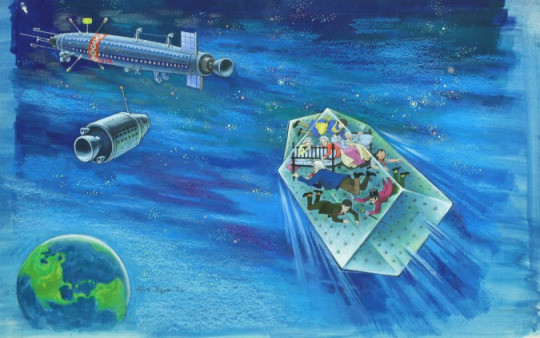
I explain: in 'The Great Glass Elevator', they explicitly say the year is 1972, in chapter 18, to be precise. It doesn't say what year we're in in the first book, I know. I didn't end up understanding the pre-decimal monetary system after all, and perhaps there is a fact in the price of the chocolate bars that I missed when I read the book in English. I could try get an idea based on the day. The first day of February, in 1964, fell on a Saturday, and in 1972 it fell on a Tuesday. It makes more sense to me that the tour would have been on a weekend, but that contest was so absurdly important that they obviously would have declared a school holiday for that day. Or a few extra if the winners had to travel.

In which case, if the year doesn't bear out, the age of Charlie's grandparents does. In the first book, we are told at the beginning of the second chapter "Every one of these old people was over ninety." But in the second, only Grandpa Joe seems to retain his 96 and a half years. Josephine is 80 years and three months old (and I expect they were already somewhat older when they married); George was exactly 81; and Georgina has 78.
Which makes me seriously wonder, did Dahl just have to change it in pursuit of arithmetic operations, or did he really forget that hole? Why wasn't that fact edited out of the first book? Dahl lived almost 20 more years after publishing CatGGE, after all.
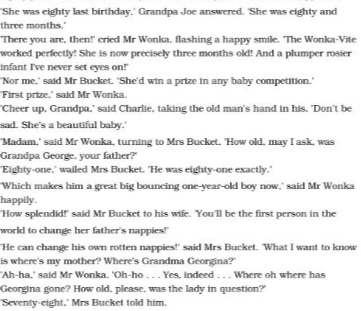
As far as my opinion of the book is concerned…. I still haven't read the second half (everything that happens after they return to the Factory). I just gave it a too-quick read looking for some wild candy that happened to sneak in. Honestly, I got the feeling that all those BORING scenes with the president's cabinet are only a nuisance and, despite the fact that I'm not the most empathetic person in the world (unfortunately), I did find the stereotype jokes pretty gross. But I do at least want to give a point to Gilligrass's flytrap. I'd like one myself. I think Dahl was trying to stretch the book at all costs, and since the filler with the president wasn't going to be enough to get very far beyond 100 printed pages, that's why the Wonka-Vite thing comes up. I read a few bits of the Minusland chapter and would have thought I was reading another Charlie book if not for the narrative style.
However, it's a pretty entertaining read otherwise and I genuinely felt excited getting to the Knids chain part - it's the glory picking an epic movie soundtrack and reading this part for the first time! It's just that the atmosphere is weird. It's not bad; I love horror and the Knids in the elevators are very creepy (in a good way). Rather, I mean all the characters (with the exception of Charlie, his parents, Grandpa Joe and Willy Wonka) feel apathetic and unpleasant. I can understand the grandparents, I don't deny it: I too would find it too hard not to panic if I were being chased by an army of genocidal aliens, but there were certain moments (not to say all of their scenes in space) where they only intervened in the scene to complain and didn't help. Only Grandma Josephine, when she suggests they come back. In the second half, it seems to me that they are going to serve more as simple comic relief.
#charlie and the chocolate factory#catcf#willy wonka#charlie bucket#charlie and the great glass elevator#roald dahl
6 notes
·
View notes
Text
The Bingley Family Album: Volume XX

Benjamin has the face of a man who is not looking forward to what comes next.
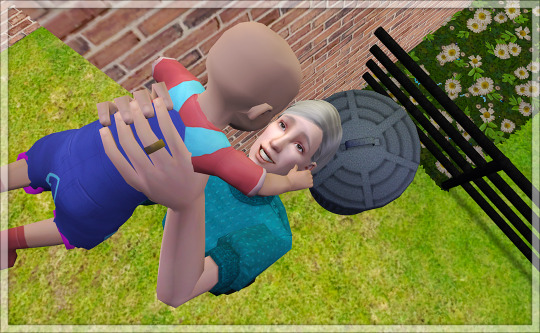
It's nowhere near as bad as he anticipated though, and at the end of it, they have a new son - Joshua!

Another redhead, with his grandma Jane's light turquoise eyes.
~ Aries 7 / 4 / 8 / 6 / 8
~ Athletic / Erratic
~ OTH: Fitness
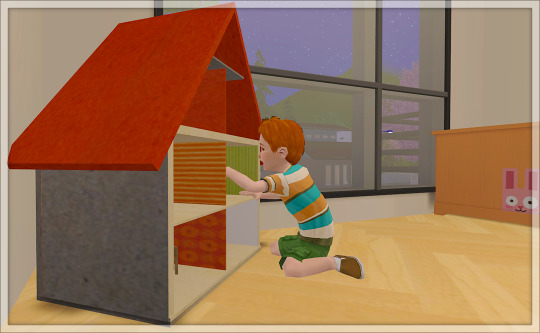

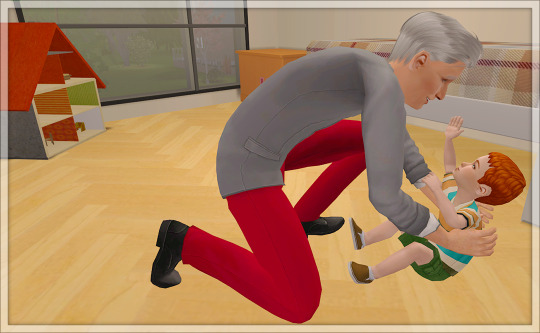
Another grandchild for both Charles and Frederick to dote on.



And another playmate for Moody.

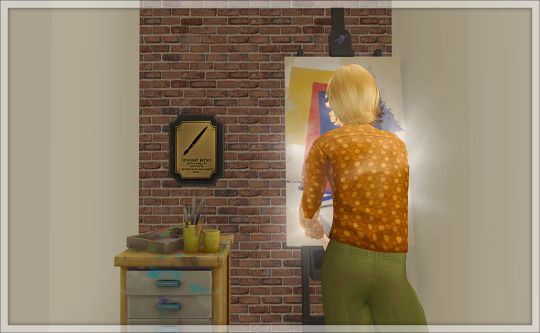
With two out of three bedrooms now housing cots and toys, Benjamin has to dismantle his dedicated studio and find a new place to work - on the landing.
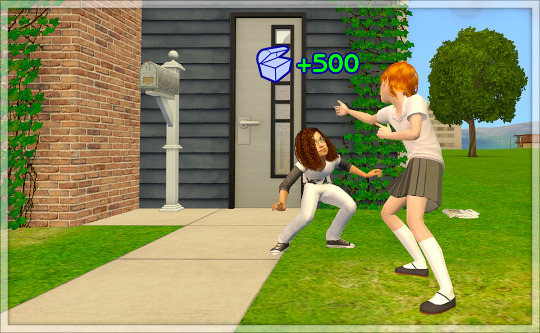

Annabel meanwhile is getting to know her classmates at school, including Georgina and Francis.

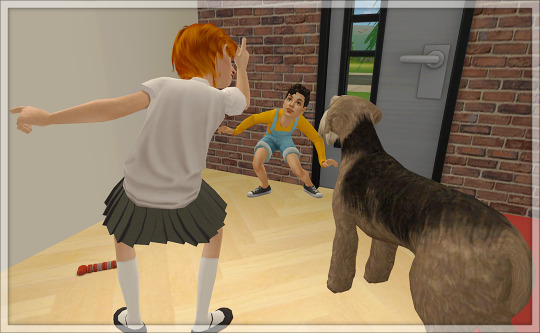
Moody is always Annabel's faithful sidekick in every game.
"Moody, kill!"
Which of course, he won't. Cousin Phineas is in far more in danger of being licked thoroughly than mauled.
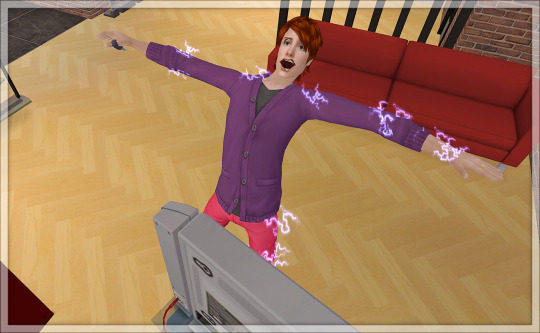

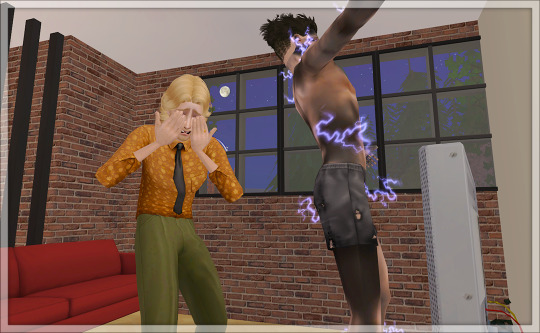
Walter is however, living life on the edge. Thankfully, he survives the episode.
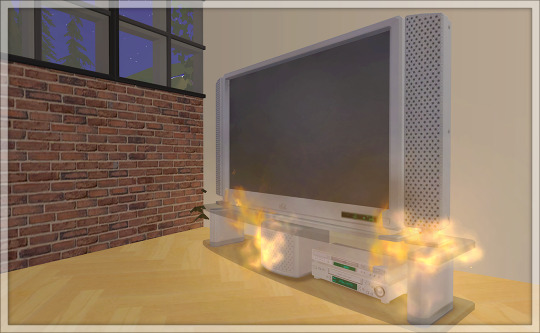
Although the TV doesn't.
#sims 2#gameplay#merybury#sanditon#benjamin bingley#walter wentworth#annabel wentworth#joshua bingley#moody bingley#jane bennet#charles bingley#frederick wentworth#georgina biggs#francis bertram#phineas elton#bingley family
9 notes
·
View notes
Text
Chapter One
Masterlist

The chocolate factory of the famous Willy Wonka was a place shrouded in mystery. Your grandpa Joe had told you many times that the factory had been closed for several years. But no one knew who could run this huge confectionery factory. Your grandpa Joe's stories made you want to visit this strange chocolate factory. Even if you thought some memories of your grandpa had to be fantasized, even if you adored him, some things were impossible. You were snapped out of your thoughts when you heard the engines of the Wonka trucks delivering the famous treats. The people driving the trucks were the only people who could get in and out of the factory. You shook your head slightly before walking back to the crude cabin that served as your family's home. Your uncle and your aunt were not well off people. You could tell they were struggling to make ends meet. From an early age, you did odd jobs to help them as best you could. Now you worked in a small store a few blocks from the cabin, all your salary went to the Bucket family. You pushed the cabin door, greeting your grandparents, your aunt and your cousin. They answered you with a "hello" and "good evening" as you closed the door and took off your coat.
"Was it to the store, honey?" asked Madame Bucket, who was cooking her famous cabbage soup.
"Nothing out of the ordinary," you replied before going to hug each member of your family before sitting down next to Charlie.
The door was not long in opening on the father of the family: Mr. Bucket. The man greeted the family which was now complete. Mr. Bucket approached his wife to kiss her. She asked her husband if there was anything else to put in the soup. You felt your heart sink as you watched the smile disappear from your uncle's lips, giving way to an embarrassed expression, shaking your head slightly. Your aunt quickly replied that cabbage went best with cabbage, all while bringing down her chopper on the poor vegetable. The father of the family came to sit at the table, announcing to Charlie that he had something for him. He took caps of toothpaste from his pocket, placing them in front of the young boy who was more than happy to find the missing piece to complete his precious model of the chocolate factory.
"It's exactly what I need!" exclaimed Charlie, rushing to his closet to pull out his model.
"What's it, Charlie?" Grandpa Joe asked, trying to see what his grandson was doing.
Charlie put down his model of the famous chocolate factory, made entirely of toothpaste cap, to hang the last missing piece: the head of Willy Wonka.
"Dad fount it, just the piece I needed."
"What piece was it?" you asked, studying the model.
"A head for Willy Wonka," he replied smiling at you.
"Well! How wonderful!" said Grandma Josephine.
"It's quite a likeness," Grandpa Joe commented.
"You think so?" Charlie asked as he left your legs to walk closer to his grandparents' bed.
"Think so? I know so."
You took advantage of this moment to join your aunt in the small kitchen to prepare the bowls as well as the tray. Once the bowls were filled, you distributed them to the others before settling on the ladder, listening with one ear to Grandpa Joe's stories. You have heard them many times. You wondered what Willy Wonka looked like. Why did he never leave his factory? Where did all his ideas for his sweets come from? You quickly finished your soup to go to the room you shared with your cousin. You swapped your clothes for your nightgown, hole because of moths, and you slipped under the covers.
"I'd give anything in the world just to go in one more time... and see what's become of that amazing factory," Grandpa Joe said dreamily.
"Well, you won't," Grandpa George snapped, snapping Grandpa Joe out of his thoughts. "Because you can't! No one can. It's a mystery and i will always be a mystery. Even (Y/N) understood it. That little factory of yours, Charlie, is as close as any of us is ever going to get."
Grandpa George was right. It would take a miracle for anyone to set foot in the chocolate factory.
(o~o~o~o~o~o~o~o~o~o~o~o~o~o)
A sigh escaped your lips as you explained to the umpteenth customer that all the chocolate bars had been sold. Since this morning, people had become hysterical. You had learned from Bill that the great Willy Wonka had hidden five golden tickets to allow five people to visit his chocolate factory. Part of you wanted to find that famous ticket, but you knew your chances were slim, extremely slim.
"They were crazy before, but now it's worse," you say, carrying the last box full of Wonka bars.
"And again! Have you ever seen a new flavor come out?" Bill asked chuckling.
"I remember when the morning dew flavored lollipop came out for Valentine's Day. I've never seen so many women banging on it for simple lollipops."
Bill was laughing as you carried the box of Wonka candy into the shop. You didn't have time to open the box and put the goods away when people came tumbling into the store, their money in their hands and yelling at you to give them the famous chocolates. A crazy day in itself. At the end of the day, you were completely exhausted and sweaty. People had gone absolutely crazy.
"You did very well, kiddo," Bill said, ruffling your hair.
"Do you think this frenzy will last long?"
"Hey! Wait a bit when the first golden ticket is found. Here, present from the house." Bill handed you a Wonka chocolate bar.
You thanked your boss while unwrapping the candy. Bill was watching carefully as you removed the foil.
Nothing.
You shrug your shoulders and say you've at least won some chocolate for tonight. You said good night to Bill before leaving the store, biting into chocolate. You had to finish it before going home. You loved your family, but there were times when you wanted to keep certain things to yourself. You were already giving your salary to your uncle and your aunt. You had every right to be selfish from time to time. To be sure of that, you took a detour to finish your candy. You sat on a bench, quietly eating your chocolate and enjoying this moment of solitude. You finished the last square of the tablet. You threw the packaging in the first trash can you found, your attention was caught by the newspaper that was inside. You took out the trash so you could read the articles.
"Well, the employee unable to serve his customers is scavenging," commented a female voice.
You sighed as you turned to one of Bill's store customers. One of the hysterical customers who yelled at you when you told her Wonka chocolate was out of stock.
"And the unpleasant customer has nothing else to do with her evening?" you asked sarcastically.
"You little..."
"Everything's going good here?"
You jumped as you turned to the third person who had just arrived. You didn't hear it coming. Who was this guy? He was tall, slender, wearing a top hat and odd glasses, dressed in a red velvet jacket, wearing gloves and holding a cane. The disgruntled customer huffed and mumbled something incomprehensible before turning on her heels and leaving, leaving you alone with this strange man.
"Thank you, sir," you say, turning to the strange man.
"It's nothing. I wasn't going to let that awful thing go after you, Barley Sugar."
"Barley sugar?"
"My dearest apologies, I didn't ask your name."
"Sorry, but my family always told me not to talk to the stranger. Thanks for saving me anyway, stranger."
"Good night, Barley Sugar."
You moved away from the mysterious man to take the road and return to the cabin after another small detour to enjoy your well-deserved moment of solitude. Night had long since fallen when you returned. Your grandparents, Mr Bucket and Charlie were fast asleep. Only Madame Bucket was still awake, sitting at the table, a bowl of cabbage soup just waiting to be eaten. Your aunt was giving you a stern look as you closed the door and took off your jacket which you hung up with the others.
"Where were you? I was worried, you know."
"Sorry, aunt. It was a crazy day with that golden ticket thing. People almost scratched my eyes out when they saw they didn't have the ticket," you say while eating your soup.
"(Y/N). Your... your uncle lost his job. From now on... you are our only source of income, honey."
The sip of soup passed slowly down your throat. It had to be a bad joke. Was God punishing you for a stupid Chocolate bar? You sighed knowing what she was going to ask of you and it didn't take long to happen: working overtime at Bill's. You wanted to scream, to tell her that you were already giving away everything you earned and now they're asking for more. But you didn't say anything, you just smiled and nodded.
"No problem. I'll... ask Bill for more hours," you say, tightening your grip on the spoon.
"I'm sorry, honey. Everything will be okay, I promise."
As per usual. It was you who was drinking.
#willy wonka#willy wonka x reader#charlie and the chocolate factory#charlie bucket#mr.bucket#mrs bucket#grandpa joe#grandma georgina#grandma josephine#grandpa george#oompa loompa#fanfiction#x reader#female reader
179 notes
·
View notes
Photo
man i almost never do this but girl interrupted is one of my favorite books ever so i have a right to complain. the movie making lisa into a Sexy Evil Sociopath Villain is the stupidest shallowest most woman-hating hollywoodification possible for this narrative and i fucking hate it
here's how lisa gets introduced in the goddamn book:
Lisa had run away again. We were sad, because she kept our spirits up. She was funny. Lisa! I can’t think of her without smiling, even now. The worst was that she was always caught and dragged back, dirty, with wild eyes that had seen freedom. She would curse her captors, and even the tough old-timers had to laugh at the names she made up. “Cheese-pussy!” And another favorite, “You schizophrenic bat!” Usually, they found her within a day. She couldn’t get far on foot, with no money. But this time she seemed to have lucked out. On the third day I heard someone in the nursing station saying “APB” into the phone: all points bulletin. Lisa wouldn’t be hard to identify. She rarely ate and she never slept, so she was thin and yellow, the way people get when they don’t eat, and she had huge bags under her eyes. She had long dark dull hair that she fastened with a silver clip. She had the longest fingers I’ve ever seen.
here is the final scene in the book in which lisa appears:
A few years after Georgina went west, I ran into Lisa in Harvard Square. She had a little toast-colored boy with her, about three years old. I hugged her. “Lisa,” I said, “I’m so happy to see you.” “This is my kid,” she said. “Isn’t it crazy that I have a kid?” She laughed. “Aaron, say hello.” He didn’t; he put his face behind her leg. She looked exactly the same: skinny, yellow, cheerful. “What have you been doing?” I asked. “The kid,” she said. “That’s all you can do.” “What about the father?” “Later for him. I got rid of him.” She put her hand on the boy’s head. “We don’t need him, do we?” “Where are you living?” I wanted to know everything about her. “You won’t believe this.” Lisa pulled out a Kool and lit up. “I’m living in Brookline. I’m a suburban matron in Brookline. I’ve got the kid, I take the kid to nursery school, I’ve got an apartment, I’ve got furniture. Fridays we go to temple.” “Temple!” This amazed me. “Why?” “I want—” Lisa faltered. I’d never before seen her at a loss for words. “I want us to be a real family, with furniture, and all that. I want him to have a real life. And temple helps. I don’t know why, but it helps.” I stared at Lisa, trying to imagine her in temple with her dark-skinned son. I noticed she was wearing some jewelry—a ring with two sapphires, a gold chain around her neck. “What’s with the jewelry?” I asked. “Presents from Grandma, right?” She addressed this to the kid. “Everything changes when you have children,” she told me. I didn’t know what to say to that. I’d decided not to have any. And it didn’t look like my marriage was going to last, either. We were standing in the middle of Harvard Square in front of the subway entrance. Suddenly, Lisa leaned close to me and said, “Wanna see something fantastic?” Her voice had the old quiver of mischief in it. I nodded. She pulled up her shirt, a T-shirt advertising a bagel shop in Brookline, and grabbed hold of the flesh of her abdomen. Then she pulled. Her skin was like an accordion; it kept expanding, more and more, until she was holding the flap of skin a foot away from her body. She let go and it subsided, somewhat wrinkled at first but then settling back on her bones, looking perfectly normal. “Wow!” I said. “Kids,” said Lisa. “That’s what happens.” She laughed. “Say good-bye, Aaron.” “Bye,” he said, surprising me. They were going back to Brookline on the subway. At the top of the stairs Lisa turned around toward me again. “You ever think of those days in there, in that place?” she asked. “Yes,” I answered. “I do think of them.” “Me too.” She shook her head. “Oh, well,” she said rather jauntily. Then the two of them went down the stairs, underground.
literally cannot stand girl interrupted 1999 lmfao
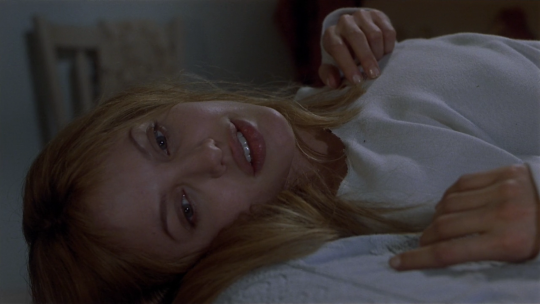
“She thinks she’s hot shit because she’s a sociopath.”
Girl Interrupted 1999
77K notes
·
View notes
Text
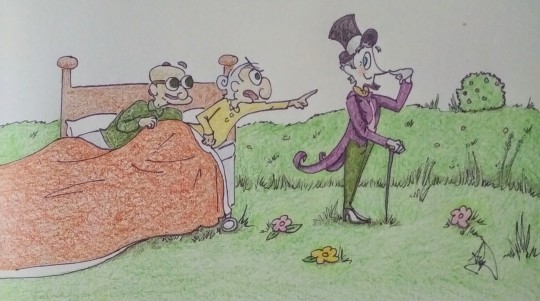
"No," said Mr. Wonka. "It's pointless. You seem to have decided to stay in that bed no matter what happens. And anyway, the stuff is much too precious to waste. I'm sorry I mentioned it." He started to walk away.
"Hey!" shouted Grandma Georgina. "You can't start something and not go on with it! What is too precious to waste?"
#willy wonka#wonka#catcf#catcf fanart#grandma georgina#grandpa george#charlie and the chocolate factory#charlie and the great glass elevator#willy wonka and the chocolate factory#wonka fanart#willy wonka fanart#willy wonka art#alicia durham art
38 notes
·
View notes
Text
Having dyspraxia can be hard but at movements my life isn't free which no mobie phone can't be anyone next kin there no phone box anymore and people don't want phone landlines there say too expensive when can use what app for free but my mum said to me " No way going have mobie phone unless use monkey phone ( at stupid child phone where track everywhere won't use) I wonful support thinking looking up wonderful support till got on bus " Show me track the bus " I try get mum give mobie phone " " In Turkey and in Greece " Disabilities people need mobie phone where can track and need mobie phone . I sad because grandma die 72 years old and mum died won't be able get touch with everyone part from church can't phone 999 if mum dead and it impossible going to doctor because isn't any so not happy person my brother Francis with children forever night Georgina in France skiing or working hard Christian in Thailand for 9 months but havn't hear from him.
I feel scarm have ruin my life by stupid mum believe she been with someone with covid 19 and idiot give bank account and lost my money too because idiot because need £1 send form throught post need set new email because Google mail want family paid for shared but mum won't do that ! In fact won't let paid sub £21 Trefoil Guild because don't do AGV meeting in cannock chase golf club for commons be fight all last year " Noughting in Stafford all around world Trefoil Guild even New Zealand Trefoil Guild no not paid sub won't let you because waste money with Trefoil Guild and Coelicuk because hold enough in Stafford " At because me hosting but how can hosting things in Stafford without mobie phone. " " No way hosting Stafford no where set Stafford Trefoil Guild group stay at home been kitchen look after me rember can't fly anymore you got look after me I had mini Stoke before Christmas keep have fun turning " I feeling got no freedom can't stayed in UK any long do love knitting but lost voluntary so just turn up knitting find learn French knitting hard and Tuesday love my art but with mum can't driver now have walk everywhere and last Tuesday thought going die car flash light let me cross over and stupid idiot motorbike went on pavement had made motorbike stop because of school children and the voice children walked home or motorbike would be hit children and won't be able get help Without no mobie phone. So feeling trap in UK just want get out try Enrolled Stafford college again for Free crouse but mum put stop it because don't want paid £2 for you going college beside know Stafford college won't have Gluten-free food because too expensive at why won't teacher medical student about Coelic and gluten-free food in Stafford because too expensive. only things two things give Gluten-free food is community church Havsert church and knitting group with gluten-free biscuits I lost it with mum it hard be change of mum because never listened and just making me feel impossible living with her can't buy Sims 3 and Sims 4 can't paid Trefoil Guild sub before thinking day 22 Feb can't paid Coelicuk membership this year because noughting Stafford how going West Midlands Brigham when mum can't drive and can't fly and buses don't run and train on not running again. Wish could going crusie stayed on crusie because clean noughting for me Stafford anymore. I do love dancing Adult children have use Sunflower hidden disabilities landyard there one havn't got card only got cash and got ask mum for money always put in white envelope it embarrassing for me.




0 notes